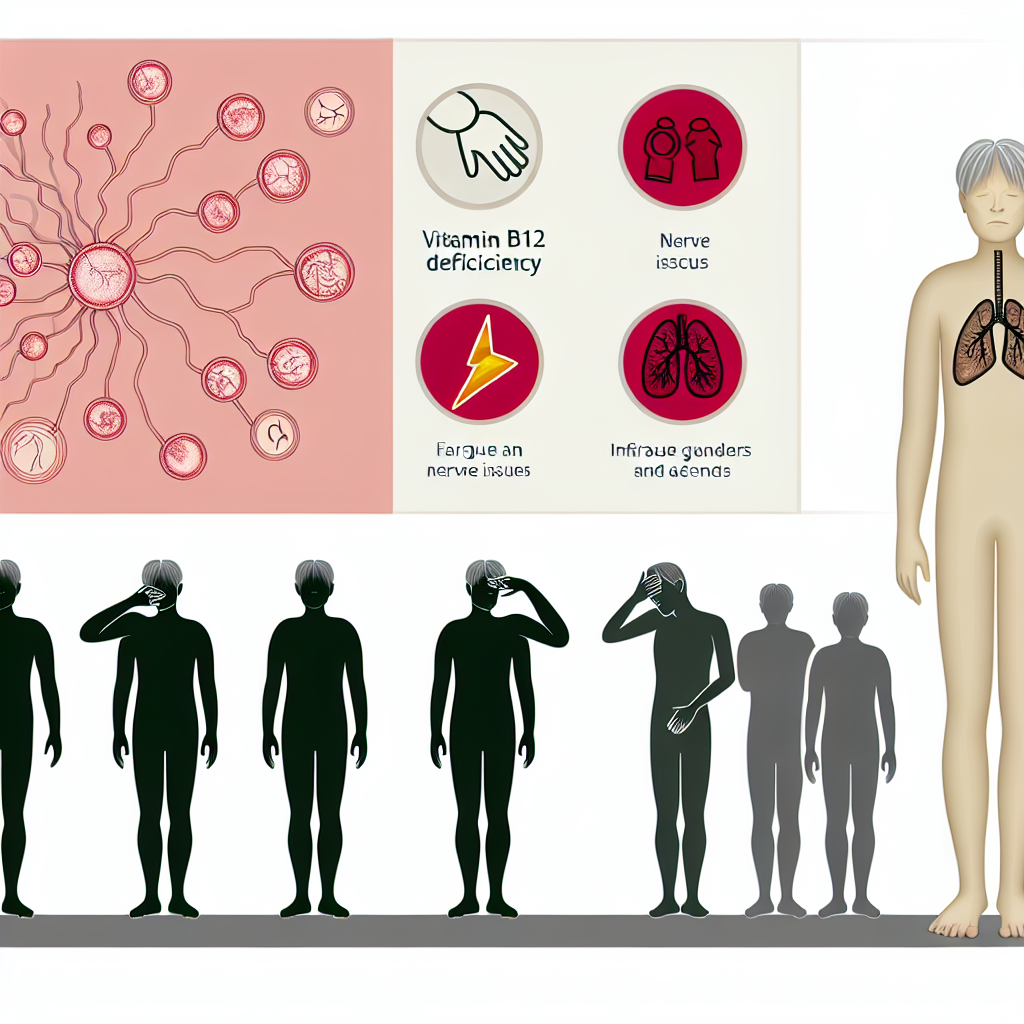Vitamin B12 is one of the most important nutrients your body depends on. From boosting your energy to supporting brain function, it’s vital for maintaining overall health. But what happens when your body doesn’t get enough? A deficiency in vitamin B12 can lead to symptoms that start subtly and can escalate into more serious health concerns if left untreated.
This article will help you identify the common symptoms of vitamin B12 deficiency, understand its causes, and explore actionable ways to address and prevent it, so you can stay on top of your health.
What Makes Vitamin B12 So Essential?
Vitamin B12, or cobalamin, is an essential nutrient that performs several critical roles in your body. It helps with the creation of DNA, supports the production of red blood cells, and ensures your nervous system functions properly. Without enough vitamin B12, your body can’t function as efficiently as it should.
The tricky part? Your body can’t produce B12 on its own. You need to get it from sources like meat, fish, eggs, or dairy products. People who follow plant-based diets or have certain medical conditions are at a higher risk of deficiency because these sources are lacking or absorption is reduced.
Common Symptoms of Vitamin B12 Deficiency
Vitamin B12 deficiency can manifest in various ways, often mimicking other conditions. Here are the most common symptoms to watch for:
1. Constant Fatigue
Feeling tired no matter how much rest you get? Persistent fatigue is one of the earliest and most noticeable signs of vitamin B12 deficiency. When your body lacks B12, it can’t produce enough red blood cells to carry oxygen, leaving you feeling drained.
2. Pale or Yellowish Skin
Do you look paler than usual or notice a yellow tint to your skin? This could be a sign of megaloblastic anemia, a condition caused by a lack of B12. Fragile red blood cells break apart and release bilirubin, which gives your skin that yellowish hue.
3. Tingling Hands and Feet
If you’ve ever felt a strange “pins and needles” sensation in your hands or feet, it could be due to nerve damage from a lack of B12. The nutrient is vital for producing myelin, a protective covering for your nerves, and without it, your nervous system can’t function properly.
4. Cognitive Difficulties
Memory problems or trouble concentrating may also point to a B12 deficiency. Since your brain relies on B12 for optimal function, low levels can trigger “brain fog” or, in severe cases, increase the risk of conditions like dementia.
5. Mood Swings
Have you been feeling unusually irritable, anxious, or down? A lack of vitamin B12 can impact neurotransmitter production, which may lead to mood disturbances, including depression and anxiety.
What Causes Vitamin B12 Deficiency?
The causes of vitamin B12 deficiency can vary but generally fall into three categories:
1. Inadequate B12 Intake
If you follow a vegan or vegetarian diet, you may not be consuming enough B12, as it’s primarily found in animal-based foods. However, fortified cereals, nutritional yeast, and supplements can provide alternatives for plant-based diets.
2. Absorption Issues
Certain health conditions can block your body from absorbing vitamin B12, including:
- Pernicious anemia: An autoimmune condition that prevents the stomach from producing intrinsic factor, a protein necessary for absorbing B12.
- Digestive disorders: Conditions like Crohn’s disease, celiac disease, or ulcers can disrupt nutrient absorption in the gut.
- Gastric surgeries: Procedures like gastric bypass often limit the body’s ability to absorb essential nutrients, including B12.
3. The Aging Process
As we age, our stomachs produce less hydrochloric acid, which is essential for absorbing B12 from food. This is why adults over 50 are more prone to deficiency and are often advised to take supplements.
Risks of Untreated B12 Deficiency
Ignoring the symptoms of vitamin B12 deficiency can put you at serious risk of long-term health consequences. Complications include:
- Permanent nerve damage: Tingling sensations could escalate into chronic nerve issues if left untreated.
- Severe anemia: Without enough red blood cells, your body becomes severely oxygen-deprived.
- Cognitive decline: Prolonged deficiency has been linked to memory loss and dementia, particularly in older adults.
Diagnosing and Treating Vitamin B12 Deficiency
The good news? Vitamin B12 deficiency is manageable with proper diagnosis and treatment:
How Is B12 Deficiency Diagnosed?
A simple blood test can measure B12 levels and confirm whether you’re deficient. Doctors may also evaluate your symptoms and medical history to determine an appropriate course of treatment.
Treatment Options
Depending on the cause and severity of your deficiency, treatment may involve:
- Dietary changes: Incorporate more B12-rich foods like meat, dairy, eggs, or fortified cereals into your meals.
- Oral supplements: Over-the-counter B12 pills are effective for mild deficiencies.
- B12 injections: These are ideal for severe deficiencies or cases where absorption is impaired.
Preventing Vitamin B12 Deficiency
Prevention is always better than cure. Here are ways to stay ahead of vitamin B12 deficiency:
- Eat a balanced diet: Include B12-rich foods or fortified products as part of your regular meals.
- Consider supplements: Multivitamins or standalone vitamin B12 supplements can help cover dietary gaps.
- Regular screenings: Periodic lab tests can catch early signs of deficiency before symptoms worsen.
Final Thoughts: Listen to What Your Body Tells You
When your body feels off—whether it’s persistent fatigue, foggy thinking, or mysterious tingling sensations—it’s worth investigating further. Vitamin B12 deficiency is one of those conditions that can sneak up on you, but with early diagnosis and appropriate treatment, you can restore your health fully.
Make your health a priority. If you think you might be at risk, consult your doctor, and don’t hesitate to take simple steps like improving your diet or adding a supplement. Taking care of yourself today can protect you from complications tomorrow!
